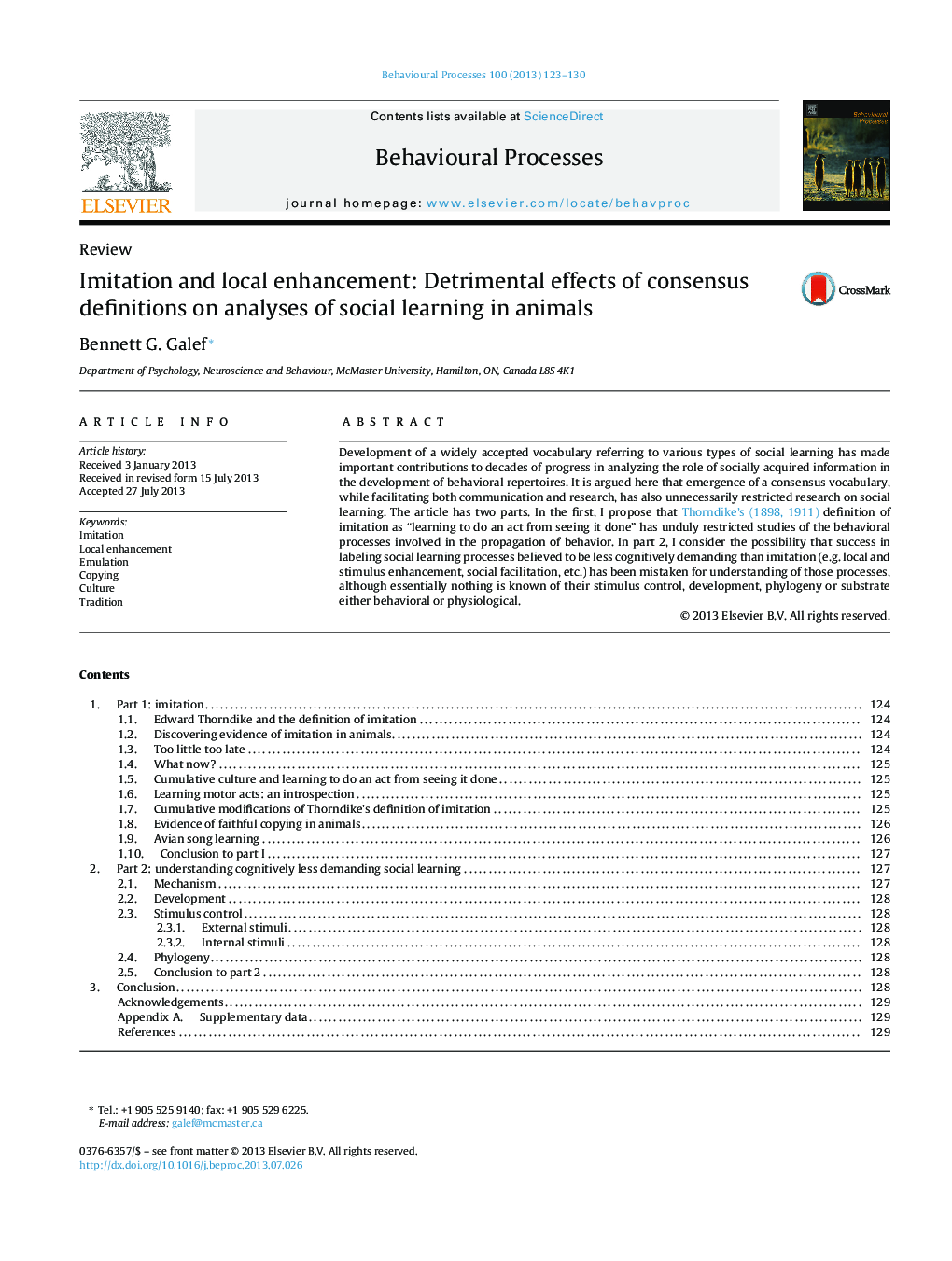| Article ID | Journal | Published Year | Pages | File Type |
|---|---|---|---|---|
| 8497424 | Behavioural Processes | 2013 | 8 Pages |
Abstract
Development of a widely accepted vocabulary referring to various types of social learning has made important contributions to decades of progress in analyzing the role of socially acquired information in the development of behavioral repertoires. It is argued here that emergence of a consensus vocabulary, while facilitating both communication and research, has also unnecessarily restricted research on social learning. The article has two parts. In the first, I propose that Thorndike, 1898, Thorndike, 1911 definition of imitation as “learning to do an act from seeing it done” has unduly restricted studies of the behavioral processes involved in the propagation of behavior. In part 2, I consider the possibility that success in labeling social learning processes believed to be less cognitively demanding than imitation (e.g. local and stimulus enhancement, social facilitation, etc.) has been mistaken for understanding of those processes, although essentially nothing is known of their stimulus control, development, phylogeny or substrate either behavioral or physiological.
Related Topics
Life Sciences
Agricultural and Biological Sciences
Animal Science and Zoology
Authors
Bennett G. Galef,
